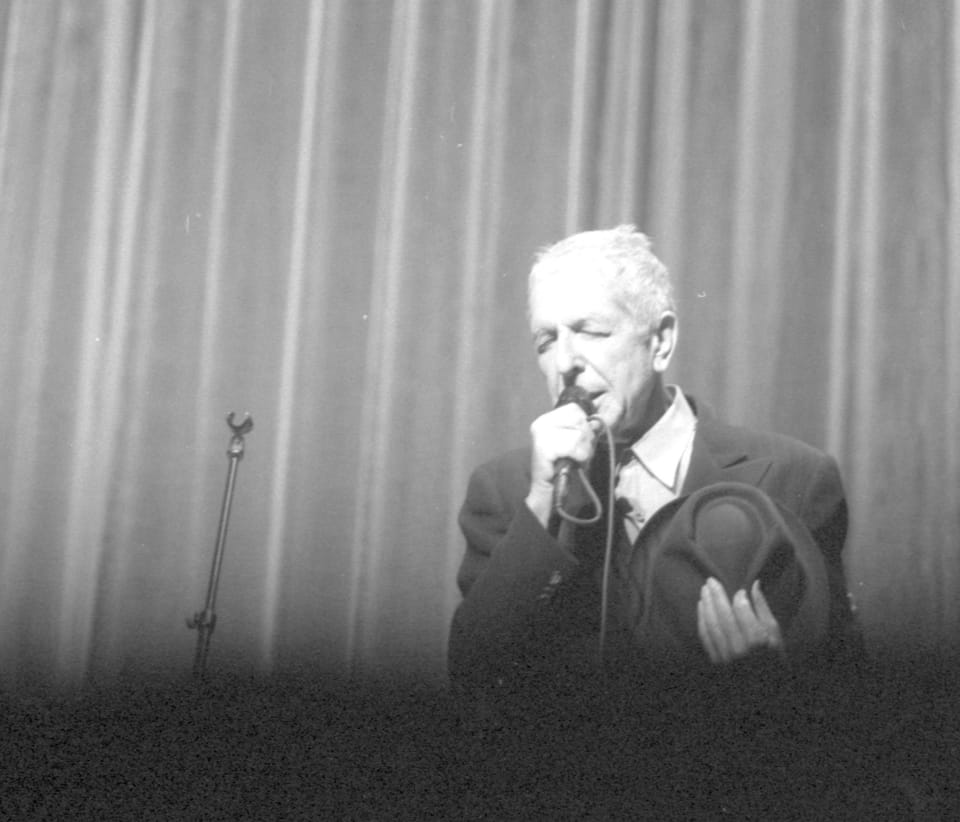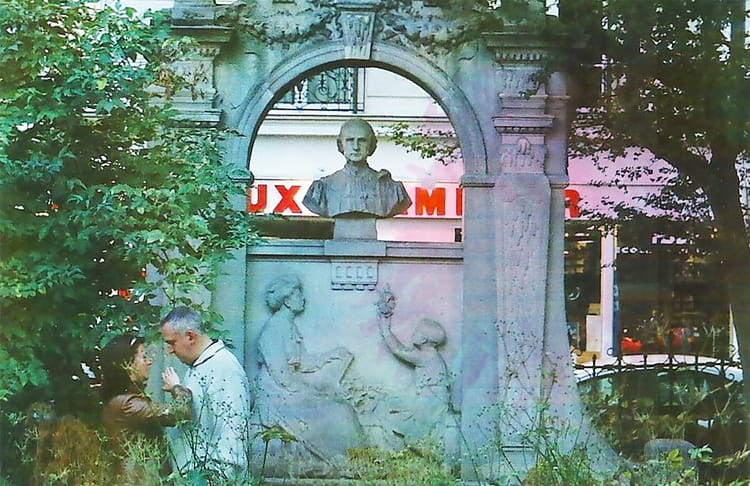Tuesday Obituary on a Thursday: Leonard Cohen, Trevor Pinch

by Sahar Tavakoli
Goodnight, my friends, goodnight: Leonard Cohen has died, aged 82. Born in the Royal Victoria Hospital in Westmont, Quebec at 6:45am on September 21, 1934 to Nathan and Masha Cohen (p. 4), he died at home in Los Angeles, California on November 7, 2016.
A practitioner of animal magnetism and mesmerism, an observant Jew who played guitar for local church mixers (p. 38), a self-appointed field-commander in Havana during the Bay of Pigs whose closest engagements with battle came through his hotel television screen (p. 93) and, much later, a Zen monk of the Nyorai-Nyokyo sect (p. 354), the most inscrutable of Cohen’s many forms was born in 1951 when the irrepressible poet enrolled at McGill University with a declared major in mathematics (p. 47). In his first year of study, he was awarded the university’s Chester Macnaghten Literary Prize (p. 45). After switching majors to law, Cohen received the Peterson Memorial Prize in English Literature (p. 49). By graduation he’d stopped fighting himself. He was awarded a Bachelor of Arts in 1955 and published his first anthology, Let us Compare Mythologies in May of 1956, shortly after moving to Manhattan (p. 50).
Manhattan was weird. Four months after the release of Cohen’s Mythologies, Jack Kerouac would complete his sunstroke of a novel On the Road, celebrating the fact by inviting friends to watch as he fucked a literal hole in his backyard (p. 51). An additional two months would pass before Allen Ginsberg published Howl and Other Poems only to see it almost immediately banned for obscenity (p. 52). It was the winter of the Beats and Cohen was easy to mistake for a sweet summer child. He wrote in the well-polished rhyme that the Beats derided as markers of the literary old guard (p. 56) and he turned up to every event in a suit.
Cohen’s subversion lay not in his passion for yard work or in his references to substance abuse and homosexuality but in his tendency to turn his reader’s expectations inside out, to present his audience with evidence of some experience only to have them feel the opposite. There was a sexless quality to his self-proclaimed title of “ladies’ man” (p. 252), a humility to his description of his own voice as “golden” (p. 359), his blasphemies sounded like prayers. Drawing his 1966 novel, Beautiful Losers, from a bookshelf is to enact a kind of contemporary reinterpretation of Edward III’s retrieval of Catherine Grandison’s lost garter. Within, three figures (of which one might be entirely imagined—I can’t quite tell) enter into a love triangle in which all take turns trying to seduce a long-dead saint. At one point, a necrotic penis falls from the body of a syphilitic host and crawls—King Missile style—across the span of a room to console a heartbroken friend. The Globe and Mail called it “verbal masturbation” and a case study in “oversex” (p. 139). And yet, honi soit qui mal y pense: the characters all seem so earnest, so pure.
Cohen slipped out of this world in his sleep. The next morning, the rest of us woke up to the news that Donald Trump had been elected 45th president of the United States. In a figurative Ivory Tower built atop a literal hill in upstate New York, everyone seemed to be losing their minds. I consoled a tenured professor as she wept over what was, apparently, the darkest day in US history. I witnessed two faculty members from a discipline that prides itself on symmetry and the tenets of the Strong Programme descend upon a peer for suggesting that Hillary Clinton might not be any better a human being for the fact of Trump. Upon arriving at school, I was warned by my office-mate that non-Americans had no right to discuss the outcome of an election in which they were not able to vote. It was a disorienting moment for many and I am loath to hold anyone to the things they say in moments of shock and distress. I can, however, comfortably say this: the only person who seemed to be thinking beyond their own feelings that day was Trevor.
I’d texted Trevor that morning to let him know that Cohen had left us. His reply read “Good that he didn’t have to see this!” I think about this text often. What would Cohen not have to see? The results of the US election? The self-centered, paranoid, and ugly outbursts that now filled the air? All of the above? This was Trevor at his Trevorest. There is a crack in everything, that’s how the light gets in (p. 385).
Trevor Pinch, friend, mentor, synth maker and player, loyal Norwich supporter, liberal typer of exclamation marks, beautiful, dear friend, born January 1, 1952, in Lisnaskea, Northern Ireland, died on December 16, 2021 in Ithaca, New York. This obituary is for him. I don’t have the words to tell you what kind of a person he was, what he meant to every life fortunate enough to intersect with his light, I don’t have Cohen’s ability to turn plain language into love. I can only say this: Trevor has been spared the sight of every ‘this’ that has taken place since his death and though I suppose that ought bring some comfort, it’s impossible not to wish he were still here. I miss him.
Leonard Cohen and Trevor Pinch are survived by Sylvie Simmons, journalist and author of the 2012 biography I’m Your Man, The Life of Leonard Cohen. All page references in this obituary come from Trevor’s dog eared and annotated copy which now lives on the shelf above my desk.





Comments ()